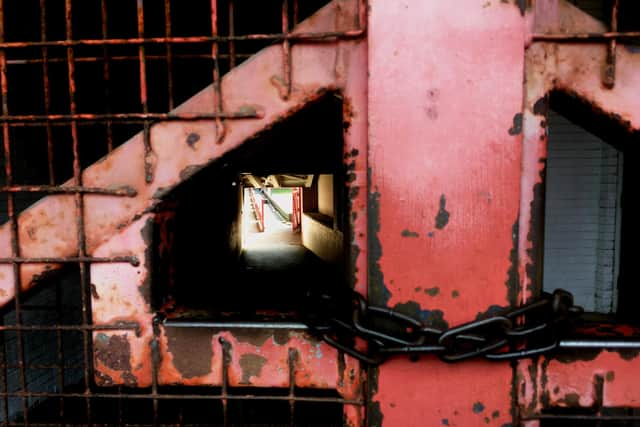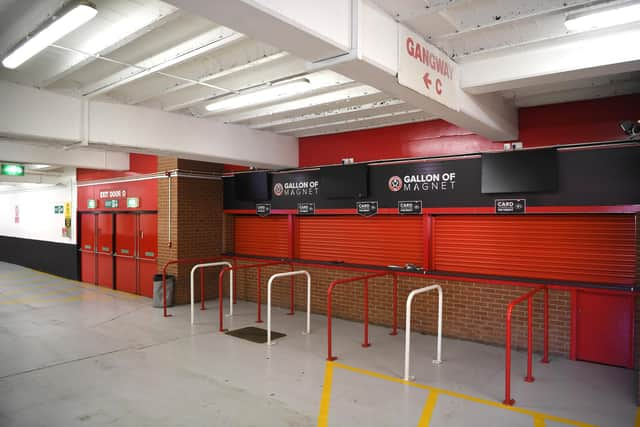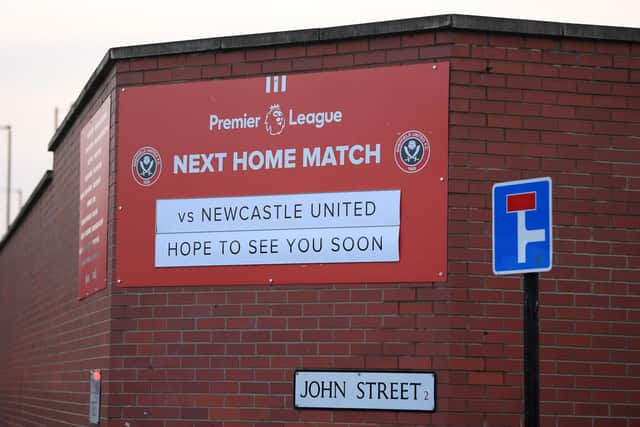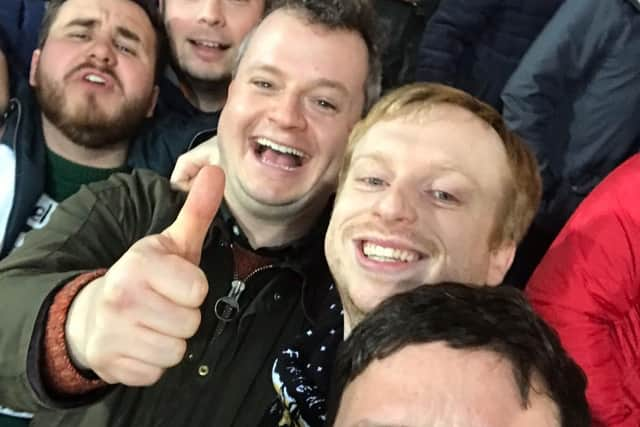Lockdown has cost Sheffield United millions - but the human cost can't be measured
and live on Freeview channel 276
For many, it has been 12 months of untold misery. The devastating effects may be felt for many years. Both livelihoods and lives have been affected and sadly lost.
Amongst all that, the impact that Covid-19 has had on football can seem trivial to some. Football isn’t a matter of life or death, as a famous manager once said, and the last year has surely shown that it is not much more important than that.
Advertisement
Hide AdAdvertisement
Hide AdBut that does not mean that the game is insignificant. There are many, after all, that rely on football for their main source of income. Like the cafes around Sheffield United’s home ground, robbed of the guaranteed income from home games. Who knows how many will survive and reopen when fans return?
Like Steve Westerman, whose voice you will have heard booming around Bramall Lane and beyond. No fans means no “programmes, £3.50” to sell on the terraces.
Like the bloke who serves you your lucky burger outside the ground, or pulls that last pint that you’ll try and squeeze in before setting off to the ground. The old boy that you don’t know by name, but nod to every other Saturday as you take your seat. All part of the fabric of matchday. How many will still be there when you return?
In a game that seems to revolve around pounds, pence and points, that is the immeasurable cost of Covid in football. We know that lockdown and games behind closed doors has cost United millions, probably their Premier League status and certainly their competitive edge. What we don’t yet know is the human cost.


Advertisement
Hide AdAdvertisement
Hide AdOn that elderly Blade, for whom that nod and odd word could be the most social interaction he has all week. On the middle-aged Blade missing the matchday routine and those relationships, to the point it has affected their mental health. On the young Blade for whom football has been reduced to a reality TV show.
A year ago, on the brink of Europe, United were riding the crest of a wave that never looked like it would end. Then, it crashed.
"Life goes on" - Aaron Ramsdale says Sheffield United have to get over Chris Wilder's exit and look towards the future
When Sam Ridley shuffled out of Bramall Lane on March 7, he had no idea what was to come. It was, in many ways, a normal matchday. An early start in the Sheaf pub, with a bit of conversation about United and the rest about who knows what. The short walk to Bramall Lane, the superstitions on the way.


But the game had already began to slowly change. The pre-match handshakes were scrapped – both teams instead awkwardly walked past each other and prepared to spend the next 90 minutes grappling with each other – and some fans, after hearing the early news reports about the new virus, wore masks on the terraces.
Advertisement
Hide AdAdvertisement
Hide AdBut then Billy Sharp headed home John Lundstram’s cross. Norwich were beaten, and United had three more points in their quest to upset the odds once again. All eyes turned to Newcastle away the following weekend. Plans made, coaches and trains booked. It was a journey that would never happen.
For Ridley and so many others, football is not just about the 90 minutes. “I’ve gone from planning my week around matchday, and now I couldn’t tell you when United are next playing without checking or having someone tell me,” he said.


“I would compare it now to watching a Netflix series, with this season being a very long and boring one. Especially when you can just ‘catch up’ by watching later.
“I was gutted when Chris Wilder left, but I was so detached from football that it felt more like a character being killed off on whatever show I was watching at the time, than the club I love being turned completely upside-down.
Advertisement
Hide AdAdvertisement
Hide Ad“In grounds, and before VAR, I was used to flying five rows forward when we scored, or not even knowing where I am.
“For the first time in years, I can count on my hands the number of games I have watched. Losing a game is forgotten about in little more than an hour, and the same if we win.
“I can only imagine how hard it must have been to be a Liverpool fan last season, or a Rangers fan this.”


United’s first home game back at Bramall Lane after Project Restart was an FA Cup quarter-final against Arsenal. The Blades lost 2-1 to a late Arsenal winner, and Dave Hardisty missed his first United home game since 1972. There were close calls – including the time he was airlifted to hospital after fracturing his skull and breaking his eye-socket after falling in the Lake District – but he come what may, he was at the Lane.
Advertisement
Hide AdAdvertisement
Hide AdLike Ridley and the thousands like them, though, lockdown was one thing he could not get around. “I don’t feel a connection with the team, manager or anything else at the minute,” Ridley added. “My focus now is about getting back in the grounds and following my team around the country for the new chapter of whoever comes through the door – whether it’s at Chelsea or Carlisle.”
With some rare positive news about the speed and progress of the vaccine rollout, there is at last some light at the end of a long, dark tunnel. Some lucky fans may return to Bramall Lane for the last match of the current season, and the ground will be full again one day. The first lines of Annie’s Song will crackle over the PA system, those pubs will dust off their taps and Westerman will clear his throat.
The day will come. It will be glorious. And maybe the lasting legacy of lockdown will be that we never take anything we love for granted again.
Comment Guidelines
National World encourages reader discussion on our stories. User feedback, insights and back-and-forth exchanges add a rich layer of context to reporting. Please review our Community Guidelines before commenting.